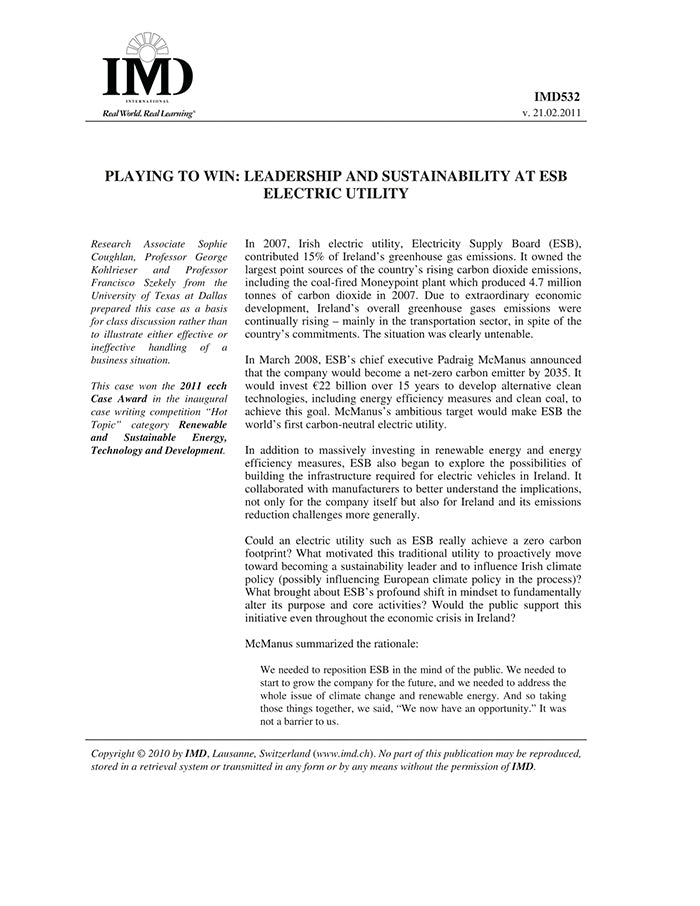PLAYING TO WIN: LEADERSHIP AND SUSTAINABILITY AT ESB ELECTRIC UTILITY
受取状況を読み込めませんでした
In 2007, the Irish electric utility, Electricity Supply Board (ESB) - 95% publicly owned-, contributed 15% of Ireland's greenhouse gas emissions. It owned the largest point sources of the country's rising carbon dioxide emissions. Due to extraordinary economic development, Ireland's greenhouse gases emissions were continually rising. The situation was clearly untenable. In March 2008, ESB's chief executive Padraig McManus made the startling announcement that the company would become a net-zero carbon emitter by 2035, and would still remain competitive. Under his leadership, ESB was going to lead the way in slowing the growth of Ireland's GHG emissions. He declared that to achieve this goal, ESB would invest 22 billion over 15 years to develop alternative clean technologies, including energy efficiency measures, the use of clean coal, and the connection of an electricity-generating wind farm to the national grid. His target would make ESB the world's first carbon-neutral electric utility. This strategy presented a number of significant risks: 1) Financial risk - the 22 billion capital investment had to succeed. 2) Technological and ecological risks - the strategic framework relied on clean coal technology, still being developed. 3) Credibility risk - what if ESB was not able to achieve its goal? 4) Stakeholder risk - Landowners, concerned over health, environment and property prices, were ready to oppose the wind farms. McManus was conscious of the risks, and he also knew that high performing leaders always take risks even while confronting dilemmas such as: Could an electric utility achieve a zero carbon footprint and remain competitive? Can a responsible leader risk jeopardizing the present and future well-being of his company, the environment, and his country? Could he exert his leadership by influencing Irish, and possibly European, climate policy? The case provides an opportunity for a debate on responsible leadership. It was written for use in senior executive and MBA programs. Learning objectives: 1) How can responsible leaders balance the competing pressures for economic performance, ecological protection and social responsibility and continue growing the business? 2) What kinds of risks can responsible leaders undertake? 3) How can responsible leaders create value for their shareholders and stakeholders? 4) Can the leader of small European electric utility influence the entire European electric utility sector?
【書誌情報】
ページ数:20ページ
サイズ:A4
商品番号:HBSP-IMD532
発行日:2010/7/5
登録日:2014/4/21


